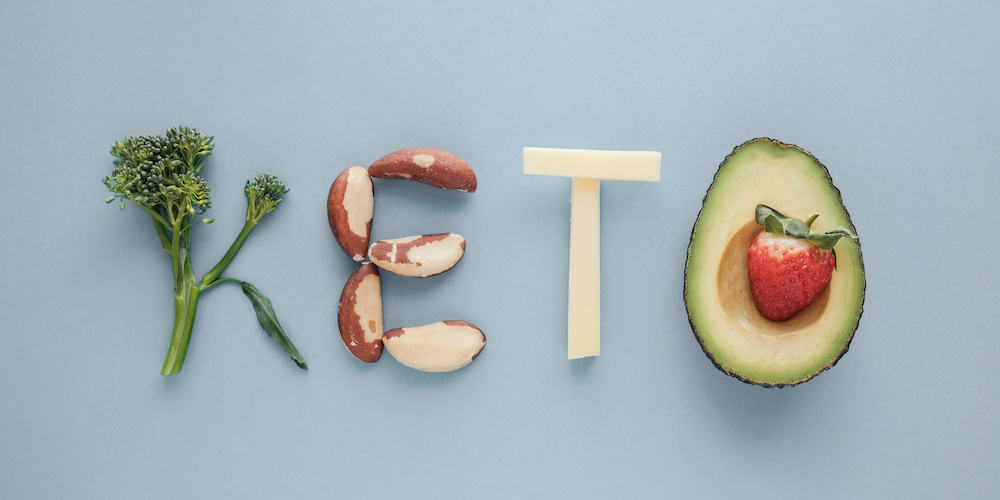The keto diet, or ketogenic diet, is highlighted everywhere, whether it’s on social media, in cookbooks, or in meal plans.
As a dietitian, I have met several patients wishing to implement this diet. So I looked into it and investigated the positive and negative aspects of this diet.
I discovered that the keto diet was initially developed in the 1920s as a potential treatment for epilepsy. It is still used for this condition, especially in children with drug-resistant epilepsy.
Today, the ketogenic diet is also studied for other health conditions, such as type 2 diabetes and obesity.
But the results are not always convincing, due to the high fat intake that can trigger other conditions. I am particularly thinking of cholesterol and cardiovascular diseases.
Also read | Our comparison of the best fat burners
What are the positive aspects of the keto diet?
An interesting reduction in carbohydrates
I remind you that the goal of this diet is to induce a metabolic state called ketosis. That is, the body burns fat instead of carbohydrates to produce energy.
The benefits would be weight loss, less fatigue, and reduced inflammation for people suffering from chronic inflammatory diseases.
One of the main principles of the keto diet is the drastic reduction of carbohydrates.
Carbohydrates are a large family, which includes starches, sugary products, legumes, and dairy products high in lactose. Perhaps you’re already thinking there won’t be much left on your plate?
In fact, it is not about completely eliminating them from the diet, but rather limiting their quantity. Some suggest 5 to 10% of their daily intake in carbohydrates (which is between 25 and 50 g of carbohydrates per day for a person consuming 2000 kcal, for example).
I find that generally reducing carbohydrates to lean towards a diet richer in vegetables, fruits, and proteins is very interesting.
Indeed, this diet has the advantage of proposing a raw and healthy diet by limiting added sugars and processed foods. People who have turned to this type of diet have noticed weight loss, as shown by this study.
Rapid weight loss
The ketogenic diet leads to rapid and noticeable weight loss, as well as favorable modifications of biomarkers, such as a reduction in serum hemoglobin A1c in patients with type 2 diabetes mellitus.
Some research also focuses on the positive influence of a ketogenic diet on gut microbiota.
But you may wonder what you will swap your cereal and milk breakfast for? I asked myself the same question while looking at my bread, jam, and orange this morning…
In the keto diet, breakfast might look like a nice ham omelet. Or a chia pudding with lots of berries, as they are low in carbohydrates.
Or even savory waffles made with a low-carb flour: coconut, almond, lupin.
The ketogenic diet scores very well in terms of healthy eating, by favoring raw foods and reducing carbohydrates.
Be careful, it’s not about eliminating them completely or reducing them to less than 5% of your needs. Indeed, the brain is glucose-dependent, meaning it functions only with the glucose from our food.

What are the negative aspects of the keto diet?
A very restrictive diet that is difficult to maintain
You understand, the ketogenic diet is a very restrictive diet that may be hard to follow in the long term.
This is really the most important negative point in my opinion. Because it can initially give the feeling of rapid weight loss (but it’s mostly a lot of water).
Upon resuming a more conventional diet, often weight is regained with additional pounds being added as well.
This diet must therefore be followed for life if one wants to retain the benefits. It also requires careful medical monitoring to avoid any deficiencies.
A possible increase in cholesterol
Some studies also show a significant increase in cholesterol in some patients, with lipid intake becoming too high. This could thus promote cardiovascular diseases.
Indeed, the second principle of the ketogenic diet is to increase the consumption of healthy fats. Such as unsaturated fats found in avocados, nuts, and seeds, as well as monounsaturated fats such as olive oil and coconut oil.
One can also consume saturated fats, like those found in dairy products and meat, but in moderate amounts.
For this diet, but also in the context of a balanced diet, it is important to limit the consumption of trans fats. These are often present in processed foods and fried foods.
Regarding fats, we therefore prioritize the “good fats” in the diet almost without moderation!
Listen to our podcast | Fat, is life?
My opinion before starting a keto diet
💡 Carefully assess dietary and social constraints
This diet is tempting, I must admit, especially if one wishes to lose weight quickly. However, it is a very restrictive and socially challenging diet. It requires constantly monitoring what you can eat and calculating carbohydrate intake. Also, finding recipes to adapt your diet daily.
💡 Get support
If you are truly motivated, get support from your doctor or dietitian-nutritionist, who can prescribe a blood test. This will ensure you are not starting with deficiencies and that your cholesterol is well-distributed.



